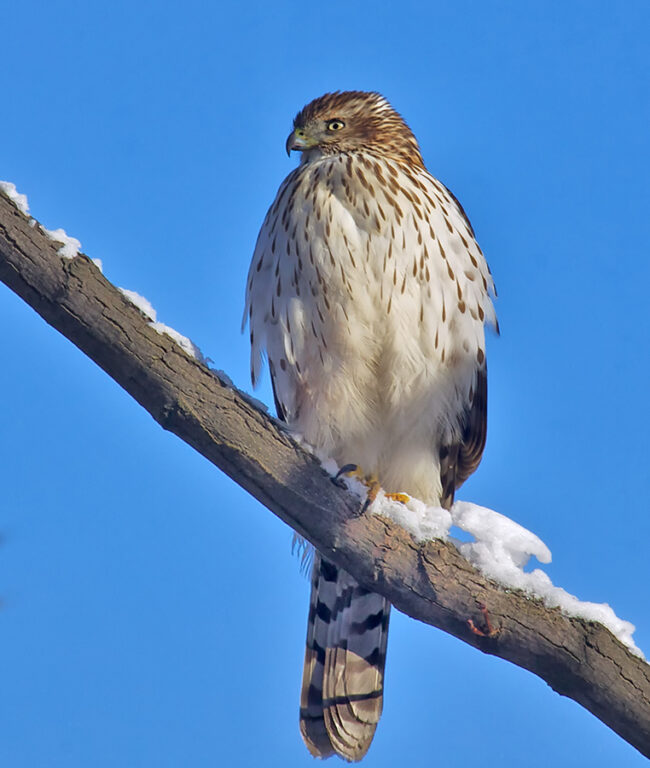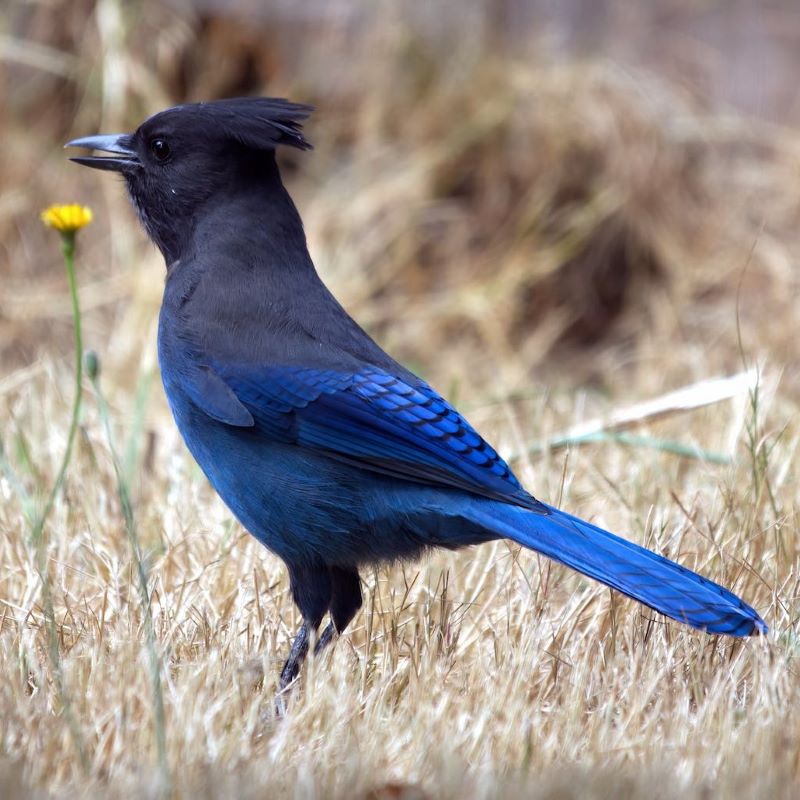
Bird names poised for a change
The American Ornithological Society (AOS) said on November 1, 2023, that it would be renaming some 70 to 80 bird species. The species that will get new names all have English bird names, and all were formerly named after people. For now, the group is focusing on birds in its geographic jurisdiction in the U.S. and Canada. And the changes will begin in 2024. The society said it’s making the change:
… in an effort … to engage far more people in the enjoyment, protection, and study of birds.
Moreover, the change comes in the midst of what the AOS called an “alarming” decline in bird populations.
The 2024 lunar calendars are here! Best Christmas gifts in the universe! Check ’em out here.
Birds on the brink
The loss of birds over the past decades alarms scientists. On a single day this past fall, due to the design of the windows in a single building – McCormick Place in Chicago – 1,000 migrating birds crashed to their deaths. Indeed, since 1970, we’ve lost three billion birds in North America. That’s one out of every four birds.
Judith Scarl, executive director and CEO of the American Ornithological Society, said:
To reverse these alarming bird population declines, we need as many people as possible to get excited about birds and unite to protect them.
And to welcome everyone into the world of birding, it helps to have an environment where everyone feels welcome. With this in mind, changing bird names to eliminate offensive or derogatory connotations and to more accurately reflect the beauty and personality of the bird seems like a logical step.
Here’s their rationale
Colleen Handel, president of the American Ornithological Society, said:
There is power in a name … We need a much more inclusive and engaging scientific process that focuses attention on the unique features and beauty of the birds themselves. Everyone who loves and cares about birds should be able to enjoy and study them freely, and birds need our help now more than ever.
And she also said that:
… some English bird names have associations with the past that continue to be exclusionary and harmful today.
To be sure, the announcement will ruffle some feathers. But, as Kenn Kaufman, the author of”Field Guide to Birds of North America<," said to NPR:
It’s going to feel like a bother to some people. But I think … it’s an exciting opportunity to give these birds names that celebrate them, rather than some person in the past.
A bird by any other name would sing as sweetly
This isn’t the first time the society has changed a species’ name to erase the human name behind it. In 2020, for example, the AOS renamed the McCown’s Longspur. The bird’s new name is Thick-billed Longspur, a name clearly more descriptive of the bird itself. Previously, it originally bore the name of John P. McCown, a Confederate general.
Some of the birds that will see name changes include the Steller’s jay, Cooper’s hawk and Gambel’s quail.
In addition, the AOS will no longer name birds after people moving forward, either. The society outlined the three changes it plans to make:
- The AOS commits to changing all English-language names of birds within its geographic jurisdiction that are named directly after people (eponyms), along with other names deemed offensive and exclusionary, focusing first on those species that occur primarily within the U.S. or Canada.
- The AOS commits to establishing a new committee to oversee the assignment of all English common names for species within the AOS’s jurisdiction; this committee will broaden participation by including a diverse representation of individuals with expertise in the social sciences, communications, ornithology and taxonomy.
- The AOS commits to actively involving the public in the process of selecting new English bird names.

Bird names are within their purview
The American Ornithological Society maintains the list of bird names for North and South America.
These English names are also widely used across the English-speaking world. All the birds also have a two-part scientific name. For example, the blue jay’s scientific name is Cyanocitta cristata. At this time, the scientific names of the birds will not change.
However, scientific names do sometimes get an update under the rules of the International Commission on Zoological Nomenclature.
In addition, the AOS press release said:
The AOS will conduct an open, inclusive and scientifically rigorous pilot program in 2024 to develop its new approach to English bird names in the U.S. and Canada. Additionally, the AOS has come to see its authority over the English names of Latin American birds in a new light and has committed to engaging in a broader set of conversations with ornithologists and organizations in Latin America before proceeding with Latin American name changes.
Bottom line: The American Ornithological Society announced that it will be changing the names of birds that are currently named after people. These species will get new names starting in 2024 that reflect the bird and not a person from the past.











